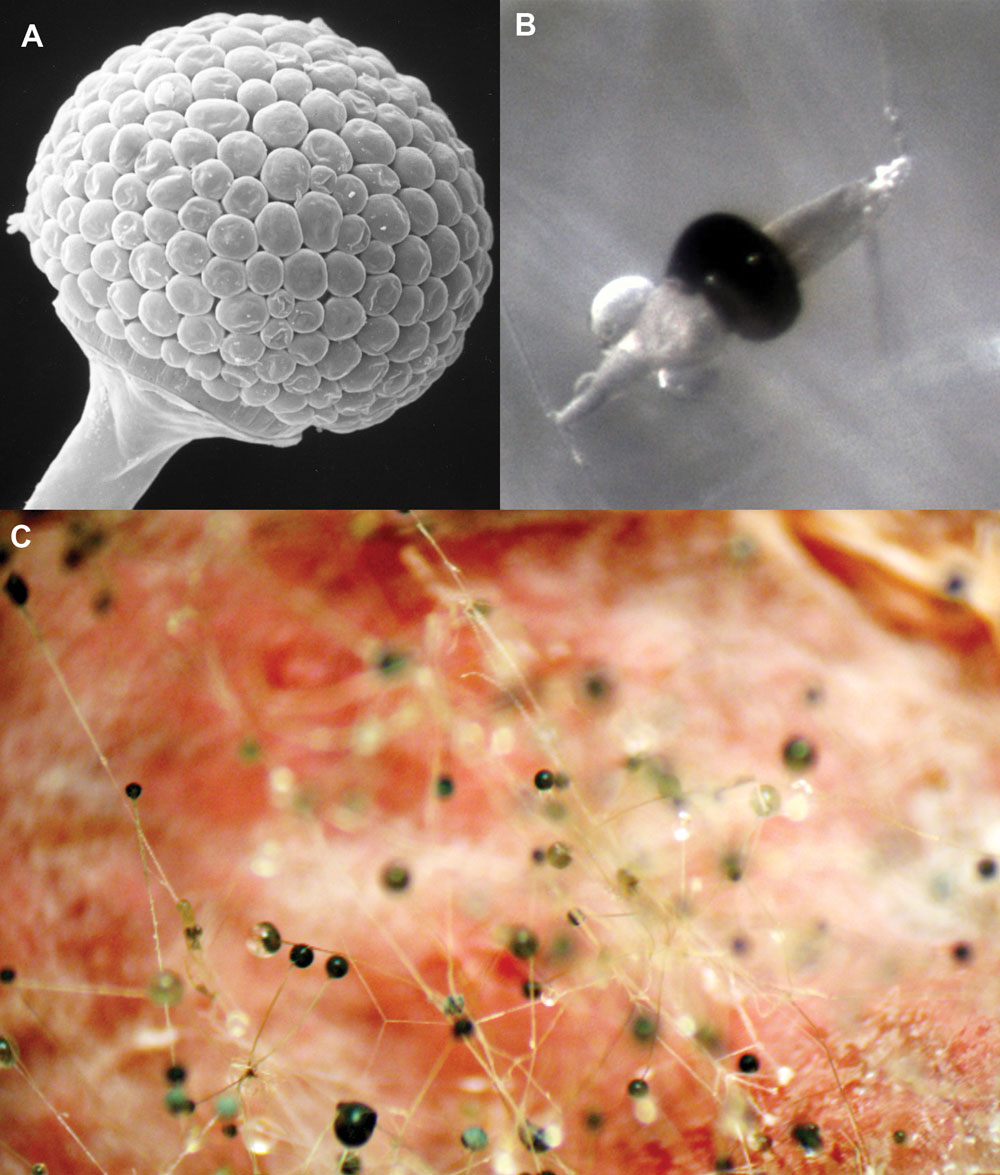
Rhizopus stolonifer NRRL 66455, commonly known as black bread mold, is a fast-growing filamentous fungus classified in Phylum Mucoromycota (Spatafora et al. 2016) within the order Mucorales. This species was originally classified in the family Mucoraceae based on morphological data, but it was recently reclassified in the Rhizopodaceae based on molecular phylogenetic analyses that revealed the morphology-based family level classification within the Mucorales was artificial (O’Donnell et al. 2001; Walther et al. 2013). This species is noted for causing post-harvest soft rots of strawberries, peaches and sweet potatoes. It is also used industrially in the production of fumaric and lactic acids. Rhizopus species grow vegetatively by the production of stolons that periodically produce rhizoids that anchor it to the substrate and unbranched aerial sporangiophores that terminate in a globose multispored sporangium. Asexual reproduction is via irregularly shaped sporangiospores. During the sexual reproductive phase of the life cycle, the self-sterile strains of R. stolonifer must mate with the opposite mating type. Following cell and nuclear fusion, a thick-walled zygospore is produce that can remain dormant for extended periods of time. Meiosis takes place when the zygospore germinates. The whole-genome sequence of R. stolonifer will be useful in resolving its evolutionary relationships and in increasing our understanding of the phylogeny of the early diverging fungi as part of the NSF-funded Zygomycetes Genealogy of Life project and JGI’s Early Diverging Fungi – 1KFG Community Sequencing Project.
References:
O’Donnell K, Lutzoni F, Ward TJ, Benny GL. 2001.
Evolutionary relationships among mucoralean fungi (Zygomycota):
Evidence for family polyphyly on a large scale. Mycologia
93:286─296.
Spatafora JW, Chang Y, Benny GL, Lazarus K, Smith ME, Berbee ML,
Bonito G, Corradi N, Grigoriev I, Gryganskyi A, James TY,
O’Donnell K, Roberson RW, Taylor TN, Uehling J, Vilgalys R,
White MM, Stajich JE. 2016. A phylum-level phylogenetic
classification of zygomycete fungi based on genome-scale data.
Mycologia 108:1028─1046.
Walther G, Pawłowska J, Alastruey-Izquierdo A, Wrzosek M, Rodriguez-Tudela JL, Dolatabadi S, Chakrabarti A, de Hoog GS. 2013. DNA barcoding in Mucorales: an inventory of biodiversity. Persoonia 30:11–47.
